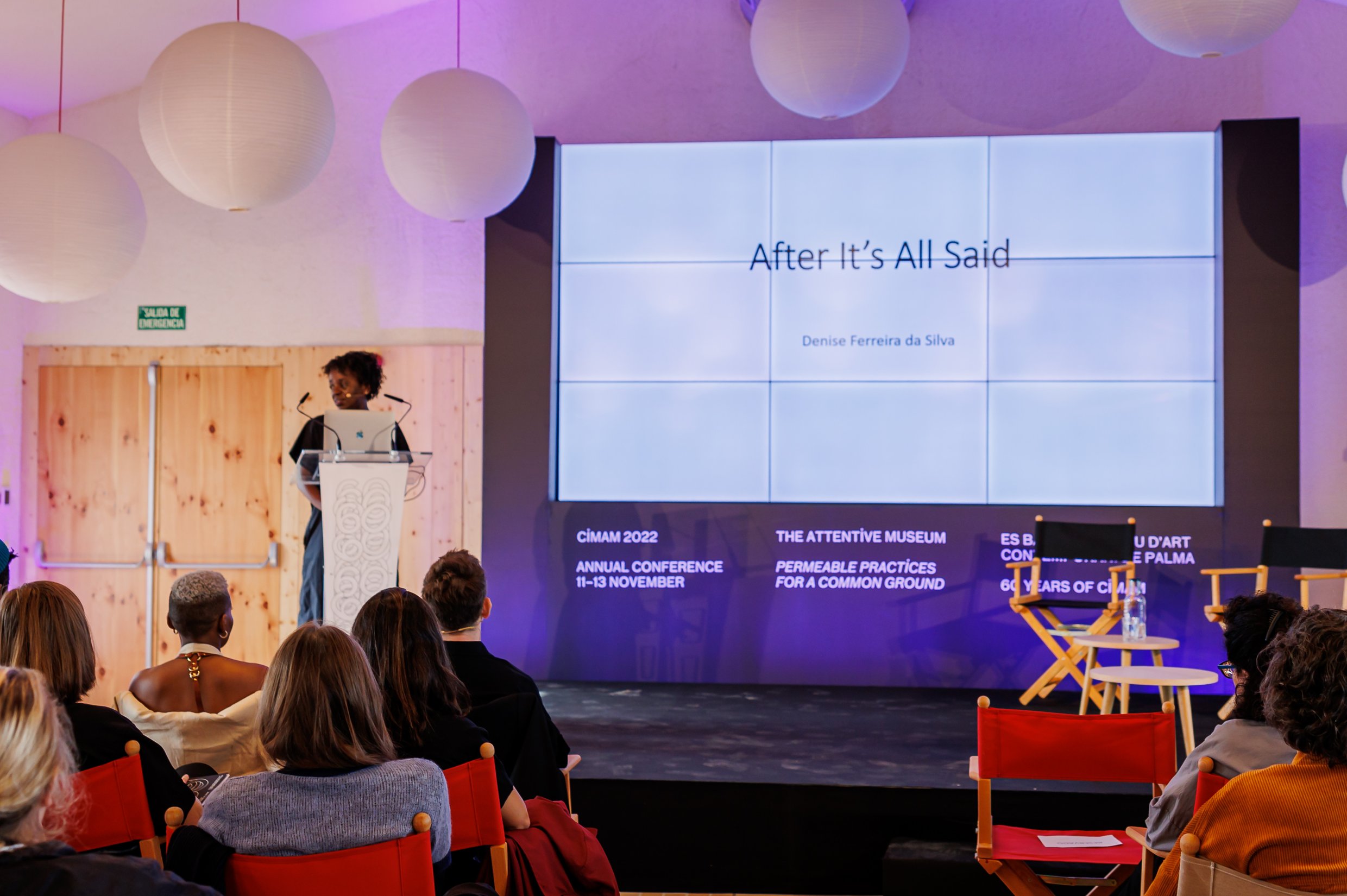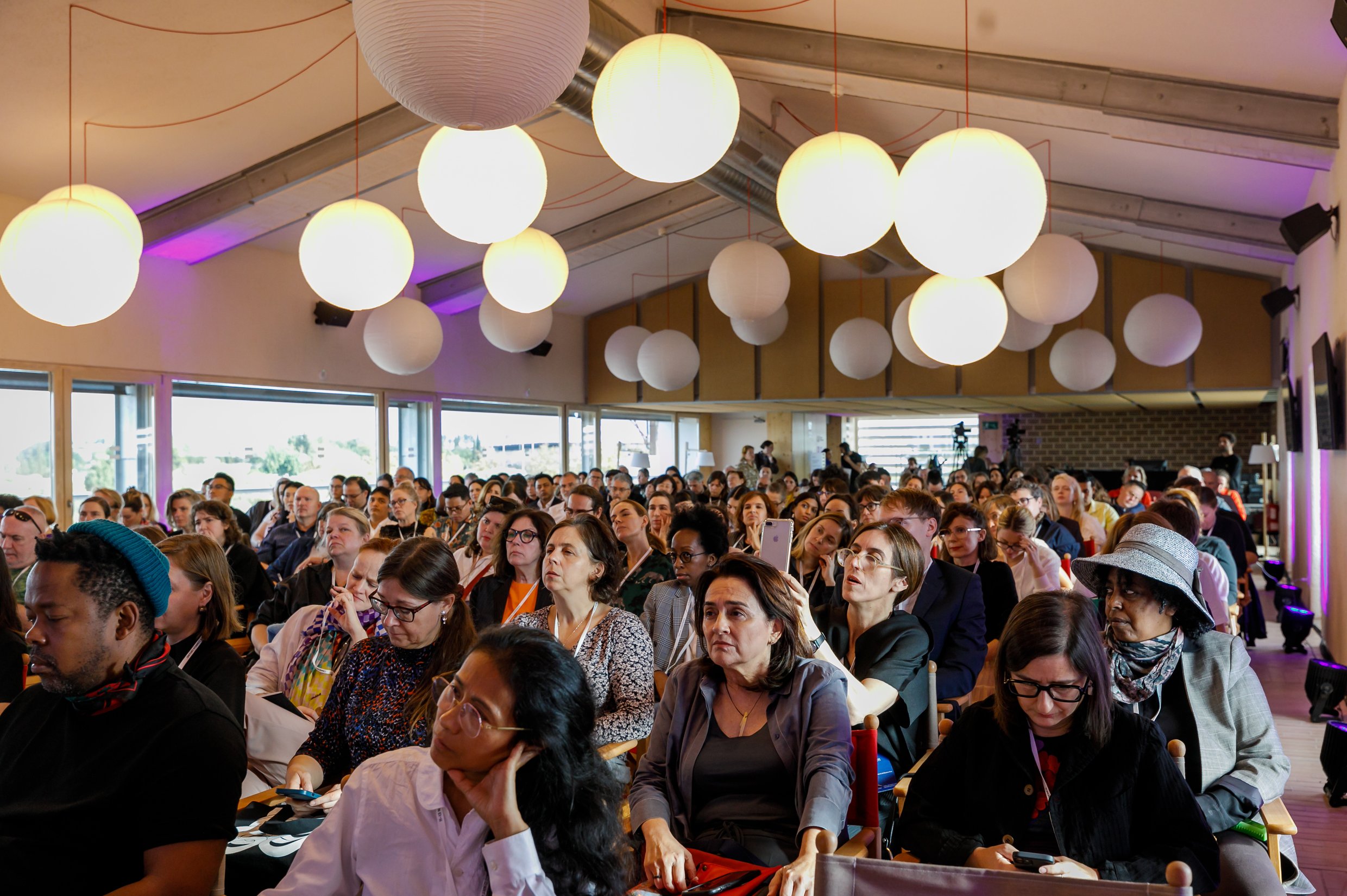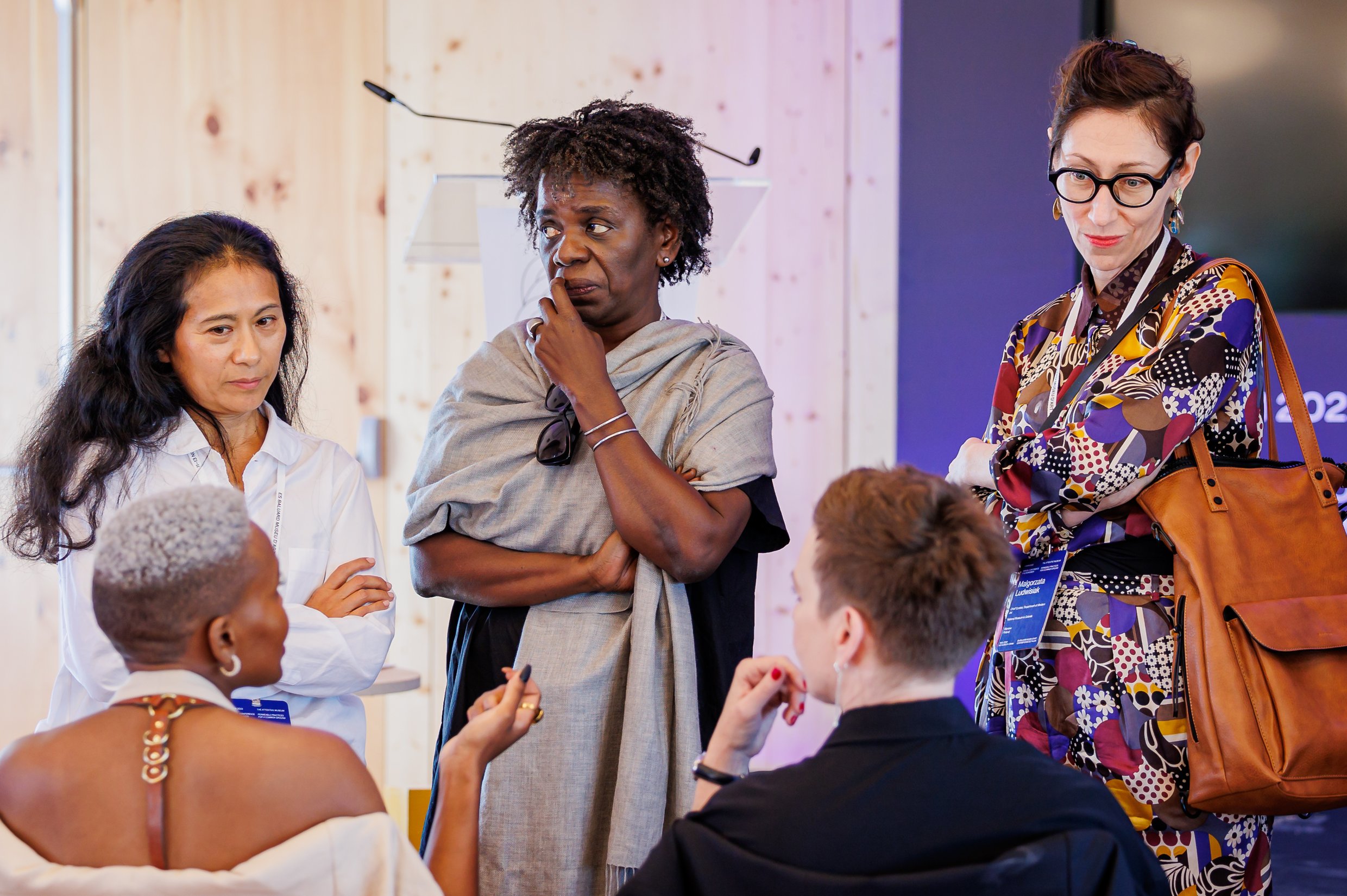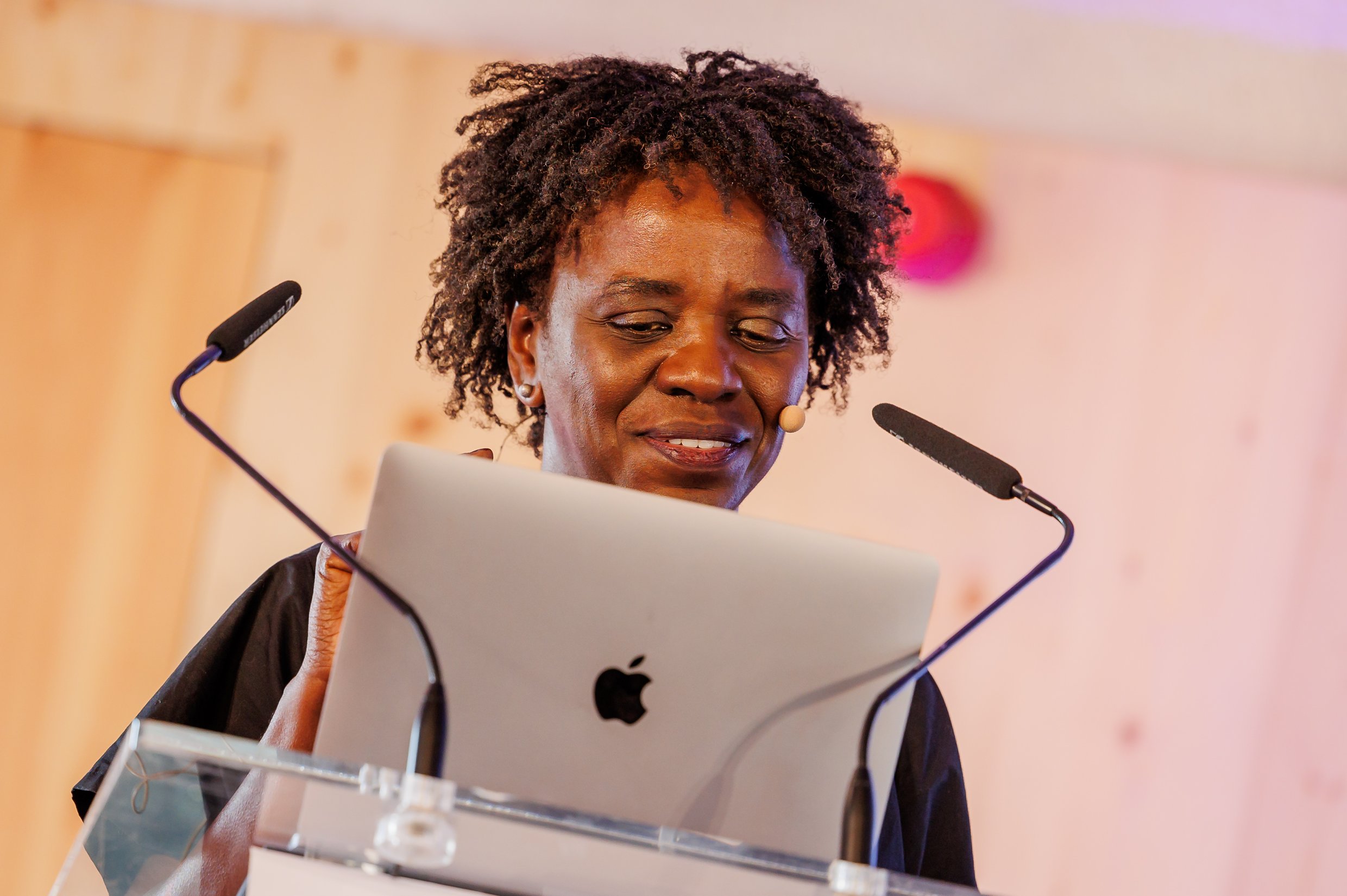Denise Ferreira da Silva
Day 2: Unlocking History and New Narratives
Keynote 1- 12 November 2022.
Abstract
After It's All Said
Throwing blacklight onto the contemporary art stage, the artwork and practices, in this presentation Denise Ferreira da Silva comments on artistic interventions that confront the colonial, racial, cisheteropatriarchal matrix of the transparent I, the figuring of the modern subject presupposed in the position of the appreciator. She focuses on how these radical interventions not only refuse to mean, to signify, immediately but they assemble artistic forms that signal a position of enunciation that is unnamable, ungraspable, un-visible and as undeterminable, and yet as effective as that of the presumed subject of appreciation. Whatever it is called, if a name is needed, this approach, reading of contemporary art through the lens of refusal, that is, as a scene of confrontation, does not fit very well into conventional descriptions of (aesthetic/art) criticism and (theoretical) critique; it does not immediately mobilize or easily recall any critical theoretical orientation.
Biography
Director of the Social Justice Institute at the University of British Columbia, she is the author of Toward a Global Idea of Race (University of Minnesota Press, 2007), A Dívida Impagavel (Oficina da Imaginaçāo Política and Living Commons, 2019) and co-editor (with Paula Chakravartty) of Race, Empire, and the Crisis of the Subprime (Johns Hopkins University Press, 2013). She has had several articles published in leading interdisciplinary journals, such as Social Text, Theory, Culture & Society; PhiloSOPHIA; Griffith Law Review; Theory & Event; The Black Scholar. Her artistic works include the films Serpent Rain (2016), 4Waters-Deep Implicancy (2018), Soot Breath/Corpus Infinitum 2020 (in collaboration with Arjuna Neuman), and the relational art practices Poethical Readings and Sensing Salon, in collaboration with Valentina Desideri. She lives and works on the traditional, ancestral and unceded territory of the hən̓q̓əmin̓əm̓-speaking Musqueam people.



